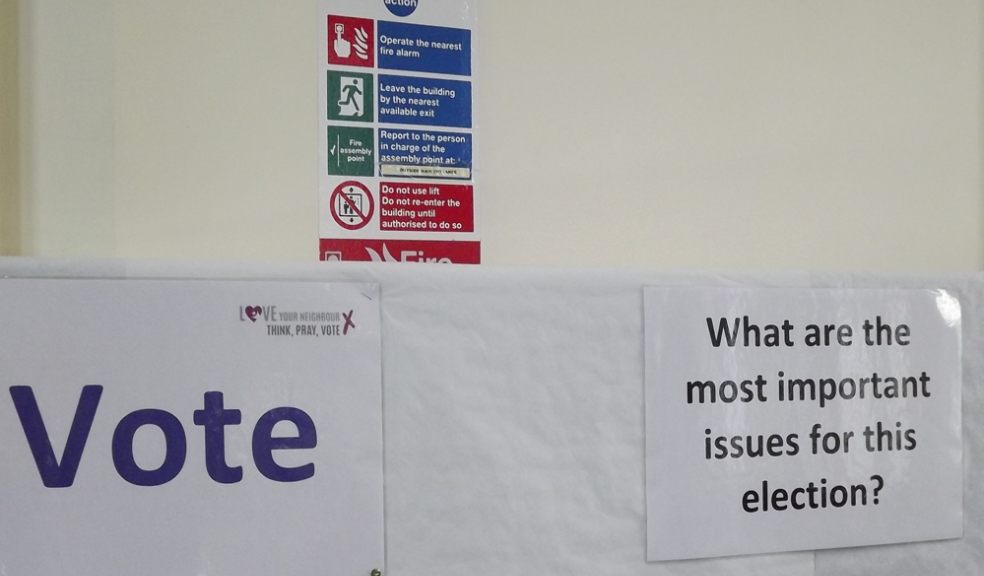
Which philosophy will shape your election choices?
In their newly published letter ‘Who is my Neighbour?’ the Bishops of the Church of England call on us to draw on our deeper consciences as we approach the General Election in May.
In particular they rightly call us to reassess the policies the political parties are offering us in terms of values.
How will this policy impact on the weakest in society? How will this affect future generations? Will this action bring about justice, peace and reconciliation? What makes for the common good? What kind of society do we expect to live in?
It seems to me that at this time there are probably two contradicting meta-narratives (dominant ideologies) facing us today – the ideology of ‘global capitalism’ and the philosophy of what we might call ‘community localisation’.
The grand capitalist idea goes something like this:
Money is the key determinant of everything and access to money through employment, investment and property is always the major driver in the world. Market forces are the main determinants in furthering economic growth, which is to be measured through factors such as GDP at a national level and acquisitiveness at an individual one. The Market is especially stimulated by the promotion of novelty and the discouragement of sharing, which leads to an extremely disposable society where we discard products and people if they no longer play a money-making role. Capitalism does not traditionally place a value on the sources of money (earth, ocean and space) or monetise the waste that results from human industrial activity (such as litter, pollution, lost species or toxic legacies left for future generations).
Profits crucially motivate human behaviour and the reward expected is personal security, household stability and individual happiness. Profits are maximised when turnover is most rapid and this is encapsulated in a culture where there is less public service provision, little government regulation and minimum democratic intervention.
For those less able to participate in the ultra-competitive world of the global corporations which dominate this situation (disabled people, those suffering from ill health, unskilled workers, older people, young children), there will be privatised enterprises to provide healthcare, schooling and welfare. Economies of scale will determine that these operate nationally or even internationally, subsidised if necessary by more lucrative commercial transactions and run with minimal levels of checks and controls.
To summarise, this is an ideology that compels us to work, to earn and consume in a world of mega entertainment, perhaps well expressed in the old Roman ideal of panem et circenses (bread and circuses) where superficial means of appeasement are sufficient to fill our bellies and to distract our minds.
In contrast to this is a second meta-narrative which is shaped not by money and economic forces but more by mutual relationships. At its centre is a recognition that all is interconnected – humanity to non-human species, all species to the Earth, the past is related to the future through the present, the strong are to care for the weak, communities working in harmony, equality for women and men, and so on.
Community happens when we share and build a common oneness. We recognise that we all share in one race and live on one planet. Therefore we can build a society together where respect, responsibility and resources are more equally shared. This is an ideology based on cooperation rather than competition, on our common interests and the common good. It leads to a society not directed by fear and distrust, divide and rule, self-greed and exploitation, but shaped by a more egalitarian sharing and caring for all. It requires boundaries but not borders; generous leadership but not egocentric leaders; seeking peaceful means to managing conflict – not abusing power or waging war as a first choice.
In terms of policies this second approach sees community learning, promoting healthy living, waste prevention, healing social brokenness through restorative justice, living wages, co-housing and good quality public transport as essential components to making a vibrant and integrated community.
In summary, we have here an alternative vision and one based on creating and sustaining relationships that hold people together in wholeness. Its wealth is not measured by financial bank accounts but on the health and well being of all, and of treating everything and everyone as an integral part of the planet which supports life.
As environmental and economic uncertainties increase, the longer term solutions will need to be local ones here in theUK and across the world.
Putting a faith perspective on this draws me in the same direction as the Bishops. Values that are upheld as Christian – love, justice, peace, integrity, community, righting wrongs, caring for the most vulnerable, dignity, hope are for me to be found much more in the second meta-narrative than in the first.
In the end let us prioritise relationships of togetherness and trust, and parties that undermine these are to be questioned. That is what will sway my voting intentions in the weeks ahead…
This article first appeared in Devon Churches Green Action News, March 2015




















